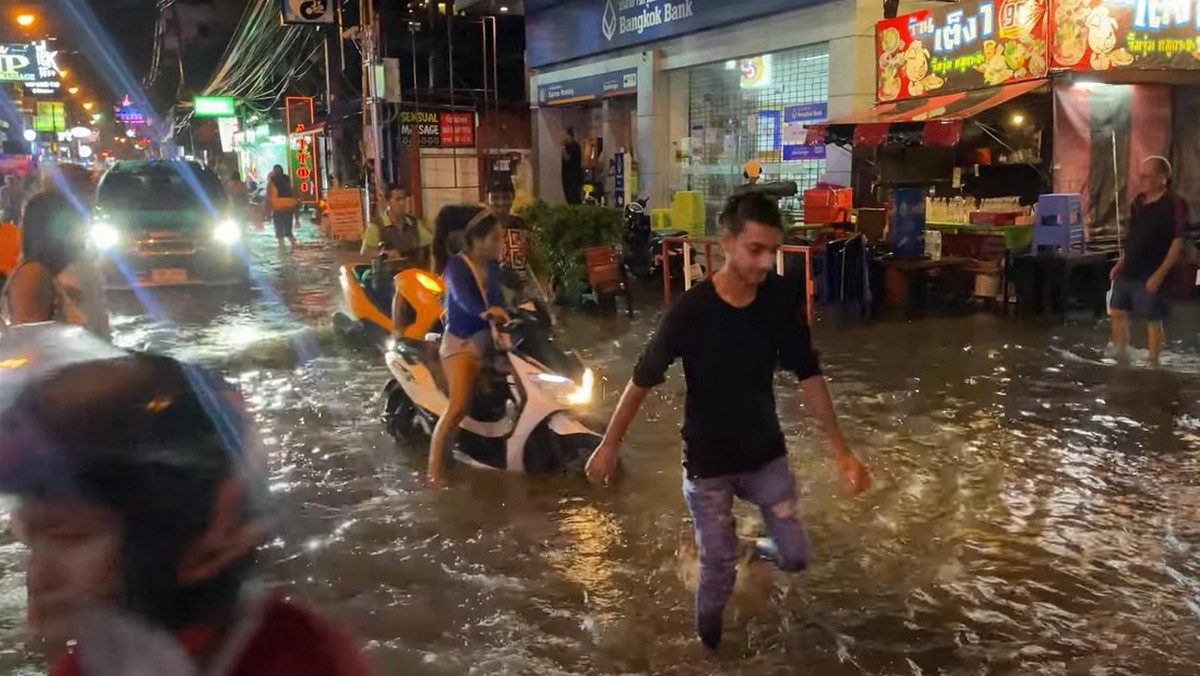Thailand, which suffered a lack of tourists during the coronavirus pandemic, has faced a new threat and is sounding the alarm. This time, the kingdom’s tourism was hit by a natural disaster. We are talking about the flood, which practically “washed away” a solid part of the harvest, and called into question the recovery of the tourism industry since, with new negative adjustments to forecasts, an increase in the cost of food is expected.
Thailand has faced its worst flooding in years, with much of the cropland inundated by seasonal storms and overflowing rivers, threatening to drive up food prices, the Bangkokpost reported. Popular tourist destinations such as Bangkok and Chiang Mai reported street flooding this week after heavy rains caused by Typhoon Noru sent water levels in the Chao Phraya and Ping rivers soaring. According to official data, the flood affected 1.2 million rai (160,000 hectares) of agricultural land, causing damage to nearly 82,000 houses in 510 districts.
With more storms forecast in the next few weeks, Thai authorities are taking steps to minimize further damage to crops and homes. Prime Minister Prayuth Chan-Ocha will travel to flood-hit northeastern provinces on Tuesday to oversee relief efforts. Between January 1 and September 25, Thailand received about 24% more than average rainfall, the Kasikorn Research Center (KRC) said, citing data from the weather department.
The rice crop has suffered the most damage, and it comes amid forecasts of lower yields in major producers such as India and Pakistan, which have been hit by devastating floods this year. The center estimates that Thailand’s main rice crop could fall by about 9% due to flooding, pre-harvest damage, and high fertilizer prices.
“The current flood impact will hit households that are already vulnerable due to low purchasing power, high cost of living, and high household debt,” the KRC report said.
Declines in rice production and losses in vegetable and fruit crops could also be bad news for the country, which is grappling with the highest food inflation in 10 years. According to Tim Leelahaphan, an economist at Standard Chartered Bank in Bangkok, the chain will work like this: a blow to agriculture will increase the price of fuel and electricity and negatively affect the national currency of Thailand.
“The effects of the flooding could be an additional risk that could emerge in the next quarter or two for Thailand. We need to monitor whether this will affect production or lead to lower rates. Any potential impact on tourism, which we hope will recover in the next quarter or two, will be a new lesson for Thailand this time, especially since it is the hope for an economic recovery next year,” the expert explained.
Thailand, which is also a major producer of rubber and sugar, is among the world’s most vulnerable countries to climate change. While the country was hit by floods in 2019, 2017, and 2011, in the last decade some regions have felt the dire consequences of severe droughts.
Last Tuesday, Bank of Thailand (BoT) Governor Setaput Suthivartnarueput said a boost in tourism would ensure continued growth in Southeast Asia’s second-largest economy next year. The central bank has previously stated that the effects of the floods require careful monitoring.

